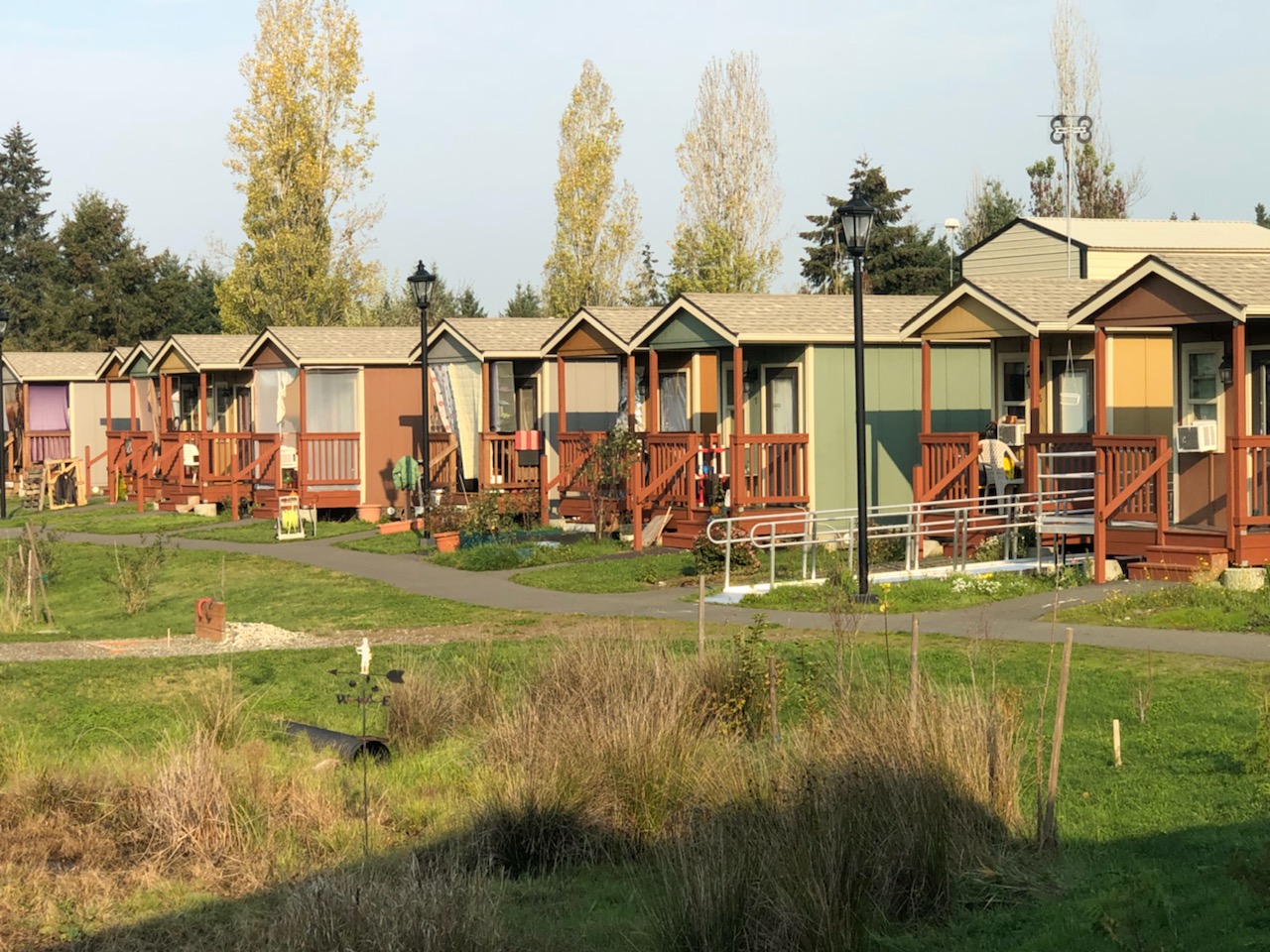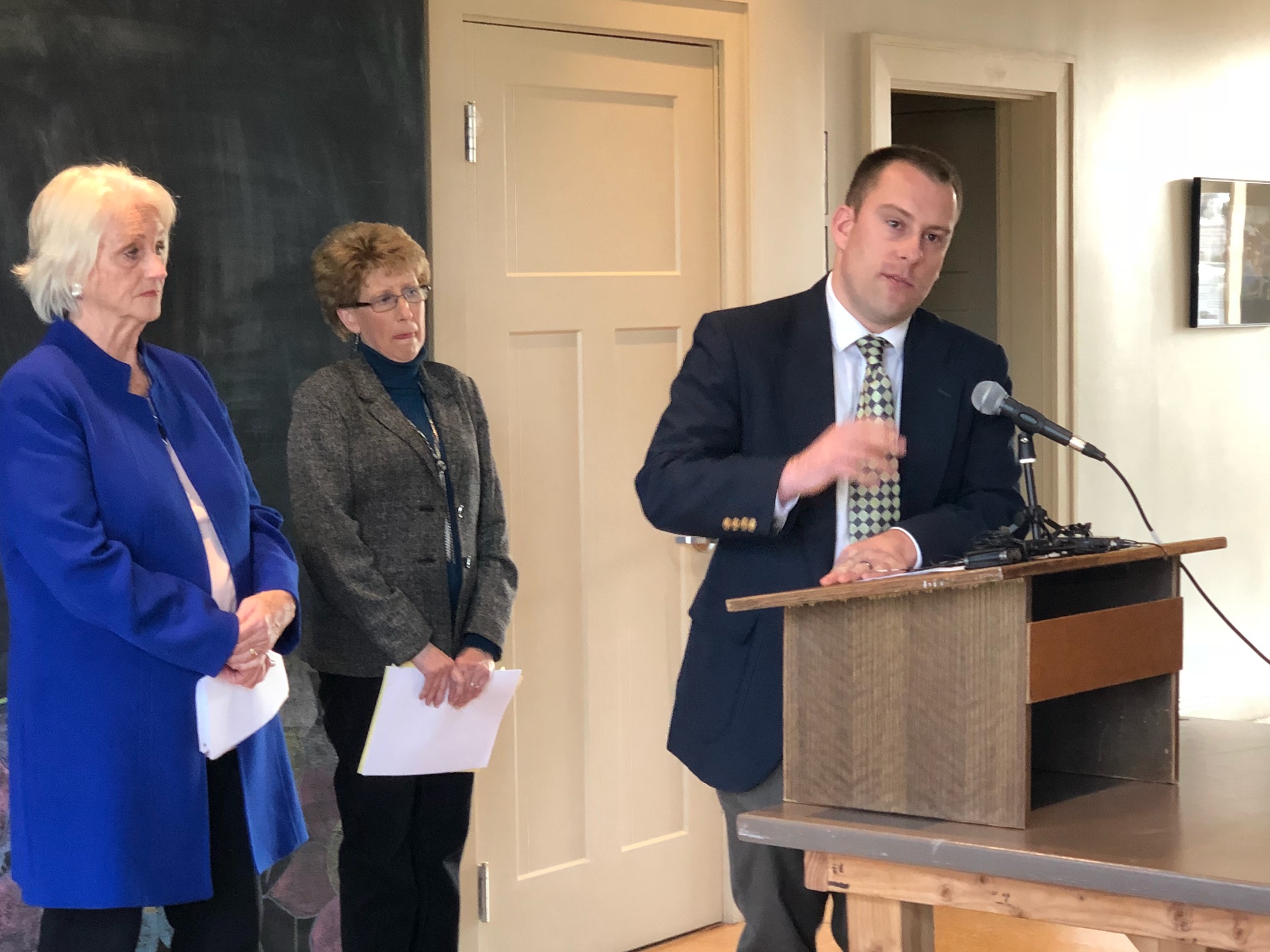Legislation focuses on increasing supply of housing to help reduce homelessness
Senate Republicans announced today they will introduce a package of bills in 2019 to address one of the main causes of Washington’s homelessness problem: the lack of affordable and available housing.
At a news conference held at Quixote Village, an Olympia-based community of 30 tiny cabins for the homeless, three Republican senators discussed their concerns about affordable housing and shared how the proposals would help reduce homelessness in the state.
“Homelessness continues to be a serious problem in Washington, and one of the key factors causing it is the lack of affordable, available housing,” said Sen. Randi Becker, R-Eatonville. “Many people assume this problem exists only in the Seattle area, but the lack of affordable and available housing is evident in many other communities across the state. Our affordable-housing package can help remove obstacles that are preventing more housing options from becoming reality.”
The affordable-housing proposals will include planning-stage reforms that affect urban growth areas and the Growth Management Act, reforms related to appeals of Growth Management Act decisions, tiny house reforms, property-tax reforms for seniors, disabled veterans and disabled persons, and connecting the homeless with services.
“Solving homelessness is a very challenging and complex issue, but simply throwing money at it isn’t going to work,” said Sen. Shelly Short, R-Addy. “According to a recent news report, nearly $200 million a year is spent on homelessness in King County, but the problem there is very far from over. Here at the state level, it’s time to try a different approach to provide more available housing, including making needed changes to urban growth area boundaries and the Growth Management Act. More available housing will mean more affordable housing.”
Short, who serves the 7th Legislative District in northeast Washington, plans to introduce legislation that would give planning jurisdictions flexibility to adjust urban growth area boundaries in response to development pressures. Short also intends to sponsor a bill to create an opt-out process for counties that originally opted in to the Growth Management Act but are suffering economically.
Sen. Hans Zeiger, R-Puyallup, will sponsor bills to reform rules related to tiny houses and tiny-house villages. They include legislation allowing tiny houses to be detached from the primary dwelling unit and utilized as additional housing, enabling jurisdictions to more easily permit tiny-house villages, and helping local jurisdictions streamline the permitting process for tiny-house villages and manufactured home parks to exist outside an urban growth area under limited circumstances.

“Tiny houses and villages are becoming more common throughout the country, and they are innovative ways to help provide more housing for those who need it, but there are rules and restrictions that keep them from being utilized as a meaningful part of an overall solution to homelessness,” said Zeiger, who serves the 25th Legislative District in Pierce County. “My bills would offer common-sense reforms so more tiny houses and tiny-house villages can be built and help reduce homelessness.”
Becker, whose 2nd District includes Eatonville, Yelm and parts of Lacey and Puyallup, will introduce legislation that aims to provide a valuation freeze and state property-tax exemption for the primary residence of a disabled veteran, senior citizen or disabled individual, if the home’s value is below the county median value or the combined household income is below $100,000.
According to the state Department of Commerce, there are more than 22,000 homeless people at any point in time in Washington. A recent news report said sales of single-family homes in King County fell 16 percent in October, while months of inventory, which had been extremely low during the summer, has increased to more than two months. A health housing market that doesn’t favor sellers or buyers is considered to have an inventory range of four to six months, the news story reported.
The 2019 legislative session begins Jan. 14 and is scheduled to last 105 days.









